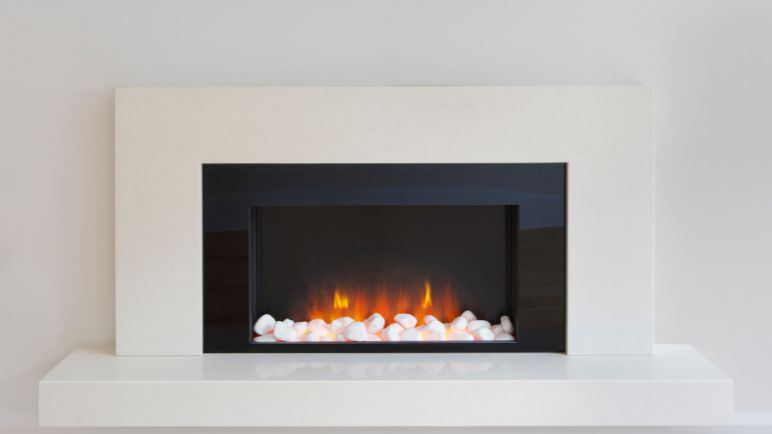Electric fires have become an alternative to traditional fireplaces due to their convenience and ease of use. However, one crucial aspect to consider before investing in an electric fire is its energy efficiency. This article will explore the economic viability of electric fires in Ireland and examine their impact on energy consumption and affordability.
Understanding Energy Efficiency
Several factors come into play when evaluating the energy efficiency of electric fires. First, it is essential to understand the energy ratings assigned to these appliances. Energy ratings provide valuable information about their efficiency, with higher ratings indicating lower energy consumption.
Electric Fires vs Traditional Fireplaces
To determine the economic viability of electric fires, comparing them to traditional fireplaces in terms of cost and environmental impact is essential.
Cost Comparison
While traditional fireplaces require wood, electric fires run on electricity. In Ireland, the cost of wood can vary significantly depending on availability and quality. On the other hand, electricity prices are relatively stable, making it easier to estimate the operating costs of an electric fire.
Environmental Impact
Traditional fireplaces emit carbon dioxide and other pollutants into the atmosphere, contributing to air pollution and climate change. In contrast, electric fires produce zero emissions directly, making them a cleaner and more environmentally friendly option.
Energy Consumption of Electric Fires
Considering their energy consumption regarding power usage and heat output is essential.
Power Usage
Electric fires consume varying amounts of electricity depending on their wattage. Choosing a model with lower wattage for greater energy efficiency is advisable.
Heat Output
Electric fires offer adjustable heat settings, allowing users to control the heat generated. This flexibility ensures that energy is not wasted by producing more heat than necessary.
Affordability and Savings
When considering the economic aspect of electric fires, evaluating the initial cost and the long-term savings they can provide is crucial.
Initial Cost
Electric fires generally cost less upfront than installing a traditional fireplace. They require minimal construction work, making them a more affordable option for homeowners.
Operating Costs
Electric fires are more energy-efficient than traditional fireplaces, resulting in lower operating costs. Additionally, adjusting the heat output allows users to optimise energy usage and reduce expenses.
Energy Sources in Ireland
The availability of renewable energy sources in Ireland also plays a significant role in the economic viability of electric fires.
Renewable Energy Options
Ireland has invested substantially in renewable energy, including wind and solar power. As the country transitions to greener energy sources, the electricity used to power electric fires becomes more sustainable and environmentally friendly.
Impact on Electric Fire Usage
As the energy grid becomes greener, electric fires become even more economical. With a renewable energy mix, the carbon footprint associated with the electricity consumed by these appliances decreases, making them an attractive option for environmentally conscious individuals.
Practical Considerations
Besides energy efficiency and affordability, practical considerations such as installation, maintenance, and safety should also be considered.
Installation and Maintenance

Electric fires are relatively easy to install and require minimal maintenance compared to traditional fireplaces. They do not produce ashes or soot, eliminating the need for regular cleaning or chimney maintenance.
Safety Features
Modern electric fires have various safety features, such as automatic shut-off mechanisms, overheating protection, and child locks. These features ensure safe operation and provide peace of mind for users.
Conclusion
Electric fires can be an economical choice for homeowners in Ireland. Their energy efficiency, lower operating costs, and minimal environmental impact make them an attractive alternative to traditional fireplaces. As the country continues to embrace renewable energy sources, the economic viability of electric fires is further enhanced.
FAQs
Are electric fires more expensive to run than traditional fireplaces?
Electric fires have lower operating costs than traditional fireplaces, thanks to their energy efficiency and adjustable heat output.
Can electric fires help reduce carbon emissions in Ireland?
Yes, electric fires produce zero direct emissions, making them a cleaner and more environmentally friendly option than traditional fireplaces.
Do electric fires require a chimney?
Electric fires do not require a chimney as they do not produce smoke or gases that need to be vented.
Are electric fires safe to use?
Modern electric fires come with various safety features to ensure safe operation. Following the manufacturer’s instructions and guidelines for proper use is essential.
Can electric fires be used as the primary heating source in a home?
Electric fires can provide supplemental heat to a room but may not be sufficient as the primary heating source for an entire home. It is recommended to assess the heating needs of your space before making a decision.


